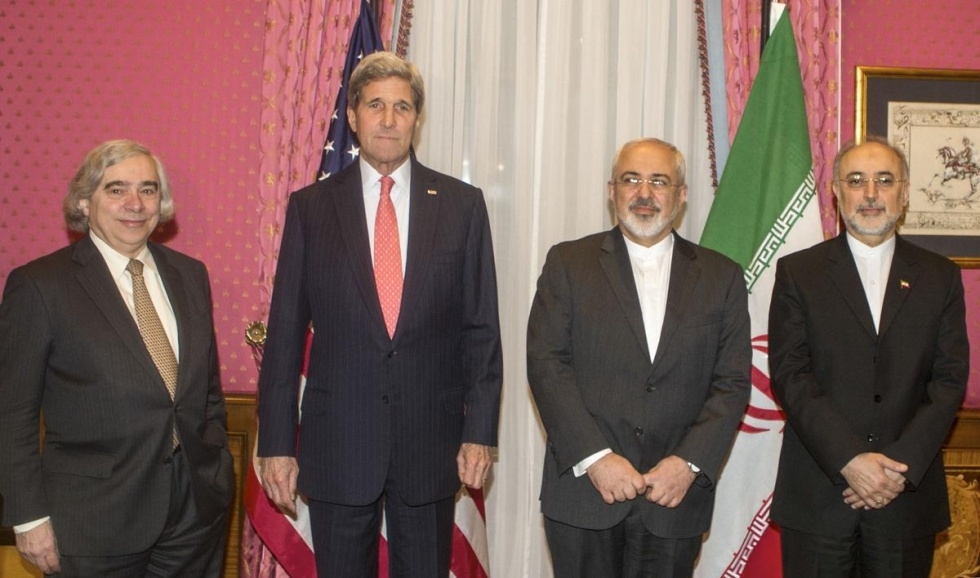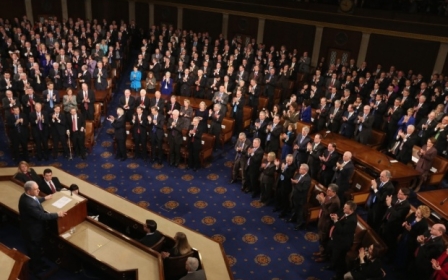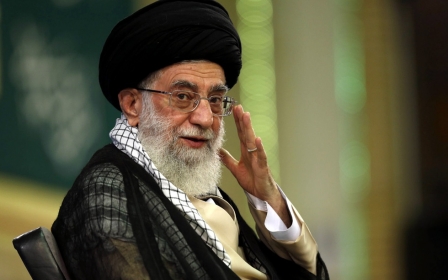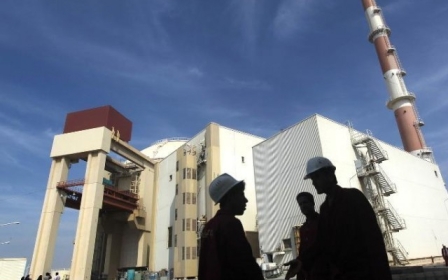The dodgy clairvoyants of the Israel lobby

One curious thing about the Israel lobby is that so many of its staff seem to be clairvoyants. Each foresees the same thing: Iran is less than one year away from having a nuclear bomb.
The certainty of these soothsayers is awe-inspiring. Time may pass and evidence may be produced to the contrary. Yet they keep warning us of the imminent apocalyspe.
The Washington Institute of Near East Policy (WINEP) is led by such visionaries. Robert Satloff, director of that august body, has carefully decoded every nuance in Benjamin Netanyahu's recent speech to the US Congress.
According to Satloff, the "key sentence" in the address contained a warning that any deal leaving Iran's nuclear programme "intact" would enable it build a bomb within 12 months. Satloff indicated that he held "conversations with two long-time Israeli defence officials" who confirmed that their nation's intelligence services share Netanyahu's fears.
Satloff is quite audacious. Although he concedes that the Israeli "security and intelligence establishment has not been viewed as a cheerleader" for Netanyahu's "overall Iran policy," he is convinced that they agree on this point. Why? Because unnamed "defence officials" told him.
Referring to conversations with anonymous insiders is a tried and tested way of sounding authoritative. Often, a reader has no way of testing if non-attributed "information" is reliable. In this case, however, there are good reasons to believe that Satloff has either been hoodwinked or that he is trying to hoodwink everyone else.
Not only has Mossad declined to be Netanyahu's "cheerleader," it has contradicted him outright. A 2012 cable drawn up by the Israeli intelligence agency and published by Al-Jazeera in the past few weeks stated that Iran is not capable of adapting nuclear fuel for use in weapons because it does not have a nuclear reprocessing plant.
WINEP is treated with respect by the US establishment. Dennis Ross, its "distinguished fellow" - an official title, I kid you not - served as an adviser to Barack Obama. Martin Indyk, a WINEP founder who served in Bill Clinton's administration, once said that the think tank wished to convey an image "that we are friendly to Israel but doing credible research on the Middle East in a realistic and balanced way".
The predictions of its clairvoyants have not proven to be credible. In 2002, it claimed that Iran's development of a nuclear bomb could "come much sooner" than the CIA had suggested. George Tenet, then the CIA's chief, said that year that Iran could be able to produce enough fissile material for a bomb by "late this decade”.
Towards the end of 2002, the institute argued that the US "should pursue regime change in Iraq" as it "cannot afford to ignore Saddam's WMD [weapons of mass destruction] threat". By making that case, it contributed to the febrile atmosphere that enabled George W Bush to start an illegal war.
WINEP is part of a vibrant "Iran watch" industry. Many of this industry's players whipped up fear about Saddam Hussein's non-existent chemical and biological weapons before the invasion of Iraq. Without displaying any signs of embarrassment about their past blunders, they are now posing as experts on the "threat" from neighbouring Iran.
The Wisconsin Project on Nuclear Arms Control is one such player. In November 2002, its director Gary Milhollin wrote an article for The Wall Street Journal, stating that "every Western intelligence service believes" Saddam Hussein possessed a "mass destruction arsenal".
Flash forward to June 2012, when Daniel Schwammenthal, who heads the Brussels office of the American Jewish Committee, knocked out a piece for the same newspaper. Citing the Wisconsin Project, Schwammenthal asserted that Iran had acquired enough uranium for "at least four nuclear weapons".
The "Iran watch" industry can send out mixed messages.
Earlier this month, Tehran unveiled its cruise missile, the Soumar. According to a US neoconservative group called the Foundation for Defence of Democracies, the Soumar is "capable of carrying both conventional and nuclear weapons" and "appears to be the ideal terror weapon".
The Times of Israel, a website set up by the right-wing hawk David Horowitz, may not have got the same memo. It reported that the Soumar is "no way near capable of delivering a nuclear device".
The website's "analysis" was shaped by a briefing given by the Fisher Institute for Air and Space Strategic Studies. Based in Herzliya, a city in the Tel Aviv district, that institute has representatives from Israel's largest arms-makers on its managing board.
They have a vested interest in scaremongering: doing so helps them sell weapons. Unlike some think tanks which cloak themselves in a veneer of "objectivity," the Fisher Institute is brazenly partisan. In May, it will hold a seminar to examine how the arms industry can help Israel win wars.
So it comes as no surprise that the institute depicts Iran as an existential menace to Israel, even if it appeared more relaxed about the Soumar than others in the Zionist lobby.
In December, the institute teamed up with WINEP to hold a conference on the "threat of Iranian missiles". WINEP's Michael Eisenstadt called on Israel and NATO to increase their work on missile interceptors, using such "shields" during training exercises. Doing so would send a signal to Tehran that its use of weapons would "yield few benefits, while risking a punishing response," he told the conference.
The Zionist lobby has been so busy speculating about the possible results of Iran's nuclear programme that it has forgotten about the actual results of Israel's activities. It has forgotten that Israel has admitted introducing nuclear weapons to the Middle East and that it refuses to accept rules on avoiding proliferation that apply in most other countries, including Iran.
No doubt, the memory loss is deliberate. Iran is not on the verge of developing nuclear weapons but the thought that it might acquire them one day is intolerable for the Zionist lobby.
They might get their wires crossed occasionally but the lobbyists all follow the same script: no other country in the Middle East is allowed to rival Israel.
- David Cronin is a journalist and activist living in Brussels. He is the author of Europe's Alliance With Israel: Aiding the Occupation (Pluto, 2011). His most recent book is Corporate Europe: How Big Business Sets Policies on Food, Climate and War (Pluto, 2013).
The views expressed in this article belong to the author and do not necessarily reflect the editorial policy of Middle East Eye.
Photo: Secretary of State John Kerry (L2) and United States Secretary of Energy, Ernest Moniz (L) meet Iranian Foreign Minister Mohammad Javad Zarif (R2) and head of Atomic Energy Organisation of Iran, Ali Akbar Salehi (R) to discuss Iran Nuclear Talks in Lausanne, Switzerland on March 16 (AA)
Middle East Eye propose une couverture et une analyse indépendantes et incomparables du Moyen-Orient, de l’Afrique du Nord et d’autres régions du monde. Pour en savoir plus sur la reprise de ce contenu et les frais qui s’appliquent, veuillez remplir ce formulaire [en anglais]. Pour en savoir plus sur MEE, cliquez ici [en anglais].





